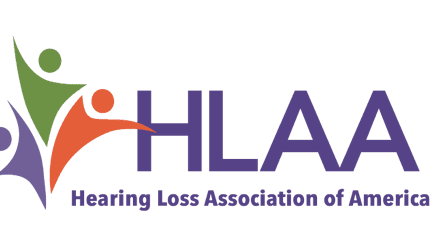The following are just a few of the many questions asked by our readers for Hearing Review’s Expert Insight. Every month, Michele Fusco shares these and other hearing practice insights at www.hearingreview.com/expertinsight.

As senior vice president of Medical Business Operations for Amplifon USA, Michele Fusco leads the company’s Sonus, Elite Hearing Network , and HearPO divisions.
Q. Where can I get a copy of the HIPAA laws and policies and procedures? I’ve been told the copies can cost about $500. Is that correct?
A. There are many ways to access information on the Health Insurance Portability and Accountability Act of 1996 (HIPAA) laws and regulations. To read this regulatory act, go to the US government Web site: http://uscode.house.gov.
However, primary sources of law are difficult to read for both lay people and attorneys. Below are some resources that may help you read and interpret the HIPAA law.
To begin with, HIPAA is governed and managed by OCR (Office for Civil Rights), and this agency oversees all complaints and investigates all potential HIPAA breaches. The OCR is a division of the Department of Health and Human Services (HHS), for which there is a comprehensive and fairly user-friendly Web site available to the public. This site, www.hhs.gov/policies/index.html, includes information on HIPAA policies, regulations, responsibilities, and a “frequently asked question” section.
HHS also distributes a reputable HIPAA summary, which breaks down the legal language and cites various parts of the law to make it more readable for the average person who may not be accustomed to reading legal language. This 25-page document is filled with various footnotes referencing the law as well: www.hhs.gov/ocr/privacy/hipaa/understanding/summary/privacysummary.pdf. Other helpful association Web sites are www.hcca.com, www.MGMA.com, and www.healthlawyers.org. All of these associations have a wealth of academic and educational articles on various topics of health care and HIPAA. Through these associations, you can obtain the information for a fee, or pay for a membership and obtain the information for free.
Lastly, as HIPAA falls under several larger laws (Social Security Act and others), you can purchase legal references pertaining to the HIPAA Act on the Internet. Prices vary greatly. Hope that this information will serve to help you begin your research.
Q.What marketing and advertising opportunities have you found to be most worthwhile for a new dispensing and vestibular practice?
A. There are many:
Grand Opening: Approximately 4 weeks from originally opening your doors, we recommend hosting a Grand Opening event at your location. During the week of the event, welcome potential patients to your practice with time for them to mingle with the staff and get to know you while enjoying refreshments, giving them the chance to do a simple hearing screening. The screening then provides the opportunity to schedule a more in-depth appointment at a later date.
To advertise the Grand Opening event, we recommend sending direct mail to no less than 5,000 consumers in your territory and following up the mailing with telemarketing to see if appointments can be scheduled in advance for that week. Newspaper advertising to reinforce the message can be effective. We recommend using an aggressive offer strategy targeting competitive users in your marketplace. In addition, sending e-mails to your contacts and distributing flyers and posters at area businesses and in local retirement communities can add buzz .
Finally, contacting local media and sending a press release announcing the opening of your location can provide further name recognition and interest.

Physician Marketing: Physicians are a great way to reach new patients, particularly because research has shown most people experiencing some hearing loss will first go to their doctor before turning to a hearing care professional. To capitalize on this, we recommend reaching out to physicians to establish a steady flow of patients to your practice from this referral source. In general, setting a goal to have five or six referring physicians or practices sending patients to your clinic is best.
Community-Senior Centers/Retirement Communities: Local senior centers, retirement communities, etc, in your area can be good sources for potential new business. Scheduling time at these centers, through Lunch & Learn or other educational seminars or by offering time out of your schedule for services such as Clean & Checks or hearing screenings, can prove valuable by introducing yourself and familiarizing these individuals with your practice so you are a future resource for them when they are looking to buy hearing aids.
Reaching out to community groups such as the Lions Club, the Kiwanis Club, or other similar organizations can also be beneficial. Offering to host an educational seminar at one of their meetings can further get the word out about your new location.
The most important thing to remember is to keep at it, keep up the community outreach by continually seeking out local opportunities, and keep up the paid advertising with a consistent presence throughout various media in your market. The sustained effort will build on itself and eventually lead to more opportunities .
Q. How do we find an AuD to hire? We have been looking for 4 long years. A. Depending on the location, finding an audiologist can be a difficult task. We have been successful finding audiologists by posting positions on industry-specific Web sites and posting positions at the universities.
A. Recently, the most successful recruitment source has been the social media outlets. We have posted job openings on our personal LinkedIn accounts and copied them to Twitter.
An example of a posting might be: “I am currently looking for an Audiologist to work in our XYZ location. If you are interested or know of anyone who might be interested, please let me know!”
Q. What are your views on the best way to “handle” insurance hearing aid benefit? As you know, we are not allowed to balance bill the patient. Yet, an insurance company’s “allowable” charge is not a realistic figure. I’ve heard of some offices billing the full amount up front and then having the patient submit the claim. Is that a problem?
A. Billing must be done accurately and professionally. Thus, having a written financial policy in place at the front desk that is well communicated and diligently utilized will help stave off a multitude of potential problems. It is vital that everyone is consistently charged the same price for the same product. Discrepancies in pricing and inaccurate billing can begin compliance-related issues in regard to Stark I and Stark II, Federal regulations, and guidelines for Medicare and Medicaid and the False Claims Act.
Insurance billing is notoriously complicated. The first step in insurance billing is to determine if the clinic in which you work holds a contract with the payor (insurance company) concerned. If the clinic does have a contract with the payor, then the terms of the contract may not be circumvented in any situation, and the current contract must be reviewed in order to determine what obligations have been set forth in it. Most insurance companies write contracts in which a biller is prohibited from collecting the balance in full, up front, from patients. Some contracts stipulate that clinics are allowed to balance bill the patient for the difference if they are choosing a more premium product. If the contract permits the balance to be billed to the patient in the instance of a premium product, it is important for the patient to know that, although they are able to choose a premium product, their benefits cover only a portion of the total amount and the patient is responsible for the remaining balance.
If the contract held between the insurance company and the clinic prohibits the clinic from balance billing the difference, then the clinic may not balance bill the patient under any circumstances. This means that the clinic will be ultimately responsible for taking the entire write-off of the difference between what the insurance paid and the cost of the device/service since the clinic has an established contract with that insurance payor.
No matter what type of contract is held between the clinic and the insurance company, it is always a good practice to complete an insurance verification process. This process will ensure that an accurate estimate is quoted. Always explain to the patient that a verification of their benefits has been performed, but the result is only an estimate of charges.
If the clinic does not have a contract with the patient’s insurance payor, then the clinic is not obligated to either take a write-off or process through the insurance. The clinic, in this case, can both balance bill and collect the money up front. If payment is collected up front, it should be kept in mind that, when a claim is processed through insurance out of network, the clinic will have to process a refund back to this patient. Also keep in mind that when dealing with a Medicare or Medicaid payor, according to the new law, ACA (Affordable Care Act), all overpayments must be repaid within a 60-day time frame. Failure to do so could potentially be viewed as a false claim. When collecting money up front or balance billing, good practice would be to have a financial policy in place for the patient to sign. This will ensure the patient understands their responsibility.
If the patient is choosing to pay privately, it is a good practice to secure an insurance waiver form, which states that the patient will not turn around and bill their own insurance company. This practice is referred to as “double dipping.” Double dipping is done to try to obtain both an insurance discount and a private pay discount.
If you are in doubt as to whether your practice is following proper insurance billing, you should seek the advice of a health care attorney to ensure that you are complying with the law.
Q. What is the most popular newborn/child screening equipment for a pediatrician’s office?
A. In recent years, otoacoustic emission (OAE) screening units have become the most widely recommended and utilized audiologic test equipment for pediatrician offices. The test takes only a few minutes and provides simple pass/fail criteria, with “fail” resulting in a referral to an ENT/audiologist for further testing.
While this test does not differentiate between conductive middle ear and cochlear dysfunction, it is a more reliable identifier of both. Even a very mild hearing loss will result in a reduced response recording, indicating a breakdown within the auditory system that prohibits a normal measure of outer hair cell functionality.
Traditional impedance/tympanometry is limited in application and can miss underlying hearing-related issues. Ideally, a combination of impedance and OAE screening would be best practice. However, if a single test is more cost-effective, OAE clearly wins in terms of diagnostic relevance.
Q. When investigating whether to join a hearing care network, what questions should an audiologist keep in mind in the pursuit of finding what works best for them? Are there things that might make one network “better” than another?
A. An audiologist should consider several factors when investigating whether to join a hearing care network or buying group. Most importantly, an audiologist should take an honest assessment of their practice and determine its biggest areas of strength and opportunity.
Most “networks,” in theory, focus their effort on assisting a business with their “business” needs. The best of these groups offer a great breadth of choice with regard to manufacturers’ technology, as well as the services and programs that a member has access to. Business building programs, such as the implementation and reporting of key performance indicators, marketing planning and execution, retirement planning and savings programs, patient referral sources, and financing options are just a few ways a network should show value.
Of course, competitive, discounted pricing for these products and services has already been negotiated for the membership.
Perhaps the most critical differentiator between networks is how well they listen to your situation and provide appropriate partnership tools to address your individual needs. Talking with current members of a particular network can also provide you with the confidence to move forward with a group you can trust.
Correspondence can be addressed through HR at [email protected].





